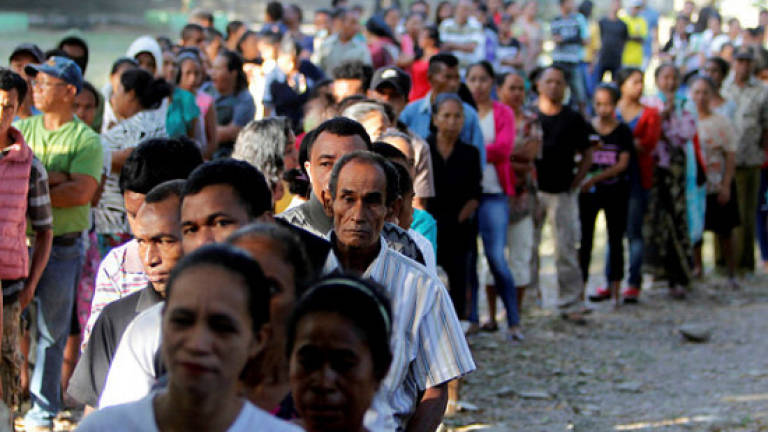East Timor swears in new prime minister

DILI: East Timor swore in a new government Friday, led by a returning prime minister who experts say will need to wean the country off its reliance on oil revenues and diversify the economy.
Mari Alkatiri, secretary general of the Fretilin party, was inaugurated with 10 members of his 30-person administration at a ceremony in the capital Dili.
Speaking to hundreds of party faithful, the 68-year-old pledged to maintain good ties with neighbours Australia and Indonesia and improve public services.
"I will create a better economy, education and health in Timor-Leste," said Alkatiri, using the official name for the country.
Impoverished East Timor, Asia's youngest democracy, is heavily dependent on dwindling oil reserves.
Reining in government expenditure on large infrastructure projects and ensuring the long-term sustainability of its national petroleum fund will be key tasks for the new government, said Professor Michael Leach, from Australia's Swinburne University of Technology.
"To avoid the resource curse it will have to diversify the economy, especially to provide jobs for the enormous number of young people it has," he told AFP.
About 60 percent of East Timor's 1.2 million people are aged under 25, according to the World Bank, and half the population live in poverty.
Fretilin, which won the July election by a narrow margin, did not receive enough votes to govern alone and has formed a minority coalition government with the Democratic Party.
With only 30 seats in the 65-seat house, the government will require confidence and supply from other parties in parliament.
"Though it is a minority government, its prospects for stability in the short-to-mid term are positive," Leach said.
Several familiar faces will return to cabinet, including former president Jose Ramos-Horta and former prime minister Rui Maria de Araujo.
Alkatiri, a Muslim politician in the majority-Catholic country, was East Timor's first prime minister following independence from Indonesia in 2002.
He was forced to resign after civil unrest engulfed Dili in 2006. — AFP